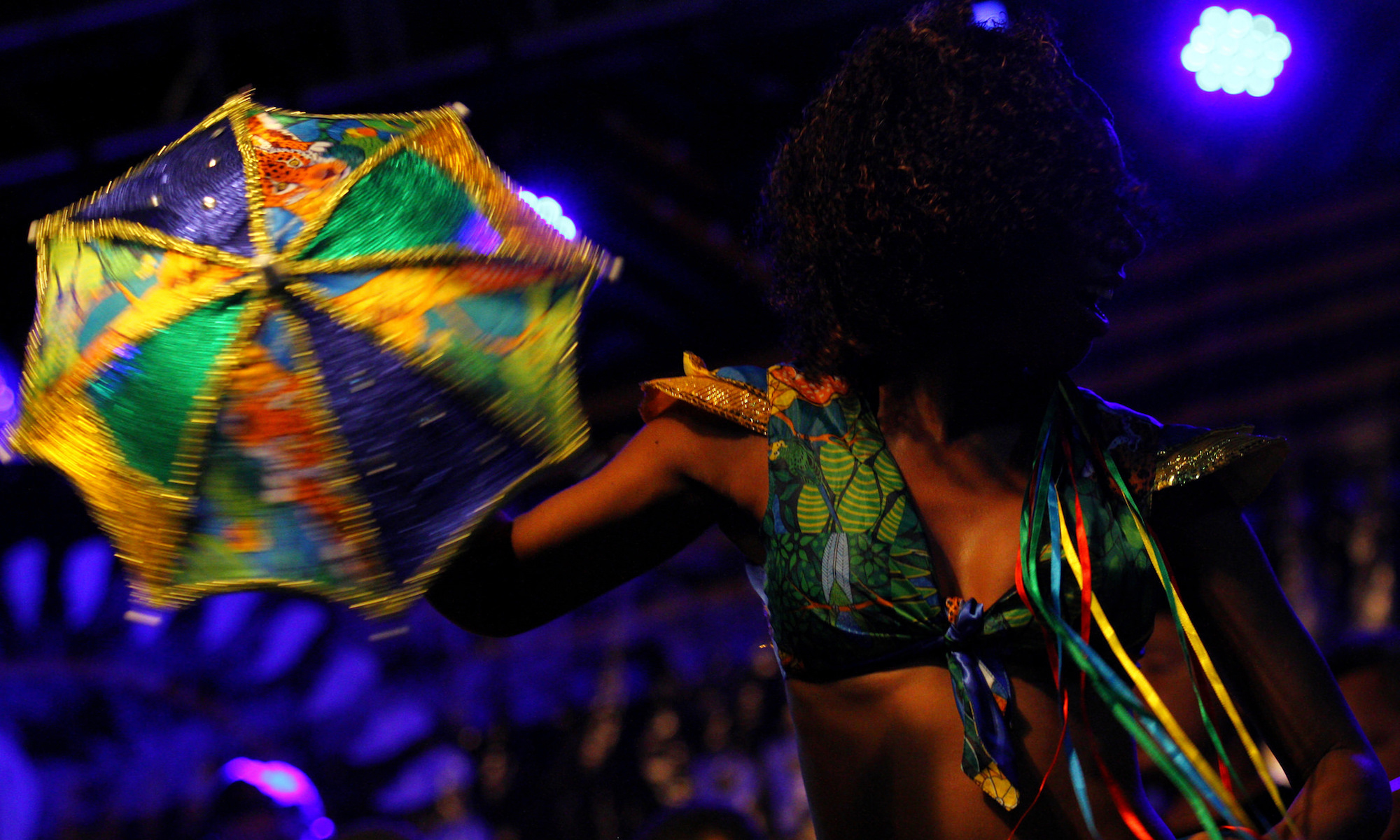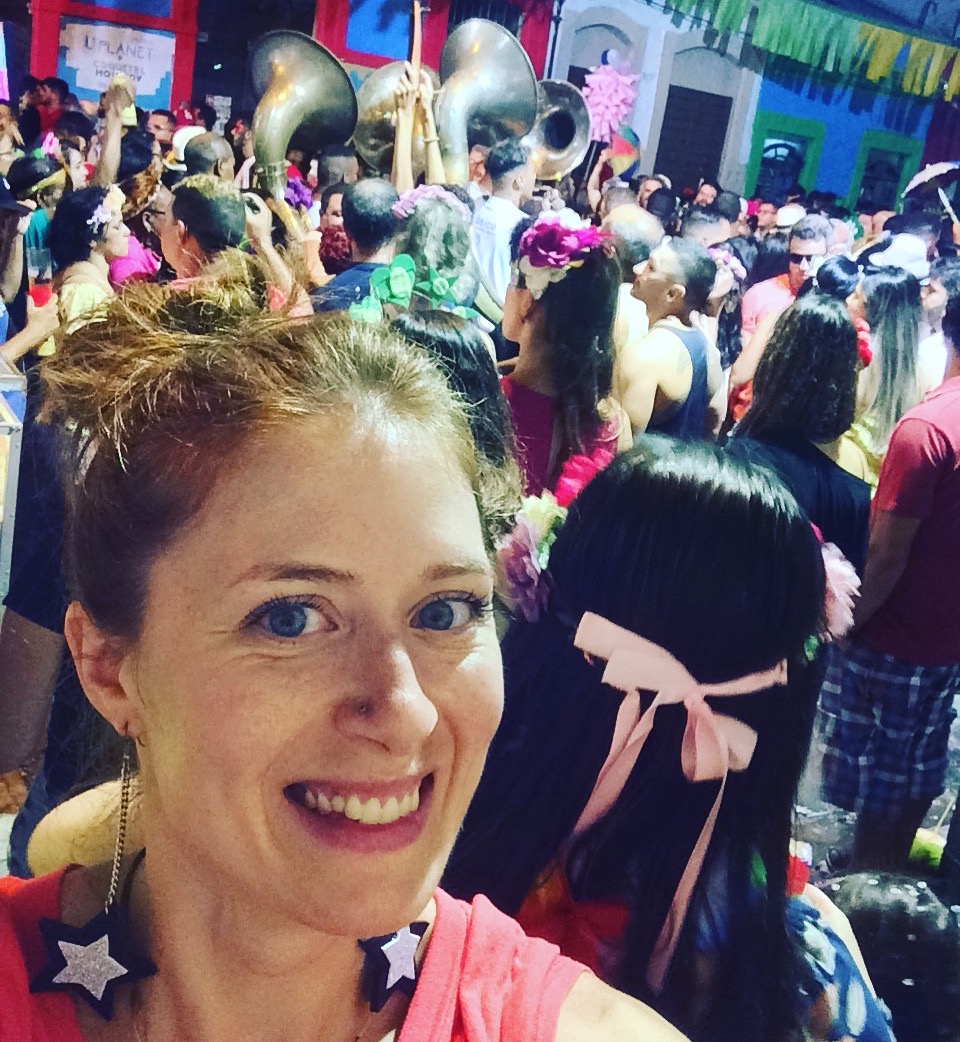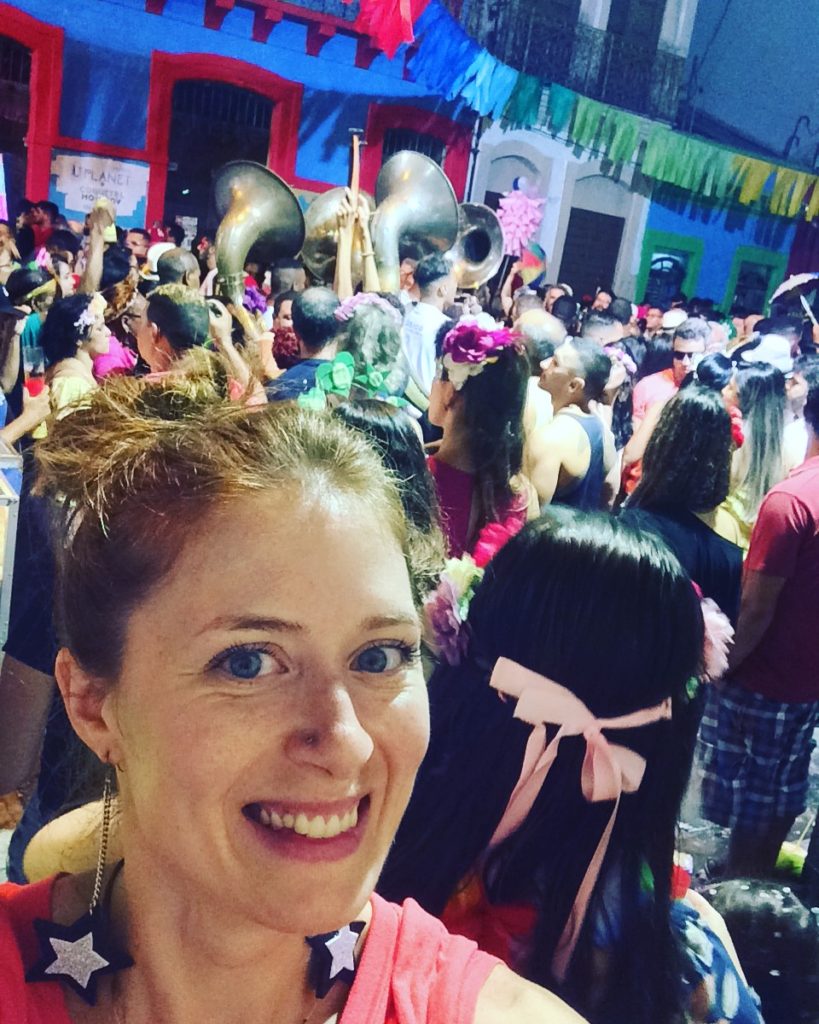Carnival has ended, which means that the first “phase” of my Fulbright research plan is over. I’ve been in Recife for about a month and a half, and I’ve experienced some of the lead-up to carnival and carnival itself. I say “some of” the lead-up to carnival because it is clear that the prévias and ensaios of the various blocos have been going on for months, and I only caught the tail-end of it. By the end of carnival, men and women covered in glitter and wearing masks and costumes were commonplace, and I hardly even reacted when a man dressed as “The Mask,” in a bright yellow suit and green mask, cross the street in front of me. (Okay, I totally pointed and exclaimed, “The Mask!”)
I feel like we just plopped down into the middle of a huge vortex and I’m still trying to make sense of it all. I am still struggling with Portuguese, although I am starting to understand better as I learn more vocabulary, and maybe more importantly, what to expect. For example, after ordering water, I can now anticipate the question, “Quer gelo?” and confirm, “Não, sem gelo [ice], por favor.” (That simple question took me by surprise for at least three weeks and I just kind of stammered and mumbled something incomprehensible in return; I need to be more confident, calm down, breathe, and realize that I know more than I think I do!). I am thankful that my partner Pablo is here with me, because without his total fluency between Portuguese and English, I think I would be crying a lot due to frustration and feelings of isolation. In our first couple weeks, we had to navigate a lot of bureaucracy that I think I would not have been able to do on my own.
Over the past month, there have been so many events to choose from! I came here to study frevo, which is central to carnival here, but is also not, of course, the only thing. There are also the caboclinhos, two distinct types of maracatu (baque solto and baque virado), papangus, tons of official concerts (frevo, samba, reggae, etc.), even more impromptu musical gatherings in bars, and just the millions of different costumes and creative personas that people put on for each day of carnival. And did I mention that there are three different types of frevo? Frevo de bloco, frevo de rua, and frevo canção. I only sort of knew this before I got here, but I certainly didn’t know how different they really are—not only in terms of style, but also the context in which they are experienced. But then again, they are also clearly linked, especially in the joy and alegria that they inspire as people jump, shout, and sing along.
I have met many people from many different areas of expertise and perspectives, who are opening my eyes to what carnival and frevo and other popular dances mean. I am interested to learn where they agree on meanings and, more intriguingly, where they disagree. The nice thing about this Fulbright research trip is that, although I have a primary focus on frevo, I am free to explore different paths and see where it leads me. I am coming from a very fast-paced working environment where I never had time to fully read, reflect, or think; and even with my dissertation work before that, I felt pressure to stay on track with my original proposal. Here, I have my central questions about “dances of resistance” that I’m working with, and those questions are getting honed each day, but I have the freedom to look for answers in more than just my originally planned focus. Frevo itself is not just one thing—as I hear over and over again, frevo “is everyone,” frevo “mixes with everything,” and frevo is “of the streets, of the people.” I’ve fallen in love with the genres of cavalo marinho and coco as well, which are stylistically so different from frevo, but which inform me of what frevo is and what it isn’t (and vice versa). Being able to dance down these various paths (pun intended) opens up new modes of understanding and, of course, introduces me to more people and more cultures.
I have been able to participate in a number of dance classes, which is by far my favorite way to spend my time (here, or anywhere else). I like to move, “try on” new steps and styles, explore different shifts of weight, try to train new “ways of being” into my body. I like feeling really uncomfortable and then seeing how I can adjust myself until, aha! everything snaps into place. (That aha! moment takes a long time and is just the beginning—there is still much more work to go.) I have taken classes with the Guerreiros do Passo, whose pedaogy is dedicated to the late frevo master, Nascimento do Passo. I have also been to the Paço do Frevo a number of times to see their demonstrations, participate in mini-workshops, view their exhibitions, and also take a couple of frevo and cavalo marinho classes. After everyone recovers from carnival, I plan to take many more classes with these groups and elsewhere, and also dig into the research—both in the archives and also talking more with people involved in popular culture about what they do and why. It has been hard, so far, to ask questions and get answers because carnival time is always so loud and I can only just barely understand and formulate my thoughts in English, let alone Portuguese. (Sensory overload!)
Now that carnival is over, I am also planning to take some trips to see more of the region and the country. This is my first time in Brazil, and I’ve heard that Recife is quite different from other parts of the country, especially those that are most often visited by American tourists (such as Rio, São Paulo, Salvador, etc.). Did I mention how few foreign tourists there are here? I have only met one other American. I’d like to experience other cities for some perspective.
It was to be expected that I would end up having many more questions than I arrived with, but somehow the flood of questions is still always surprising and overwhelming. It’s exhilarating and scary—how will I ever wrap my head around all of this? I won’t, of course, in just six months. But I do hope that things will start to fall into place a bit. I’m just keeping my eyes open and my feet ready to dance.


